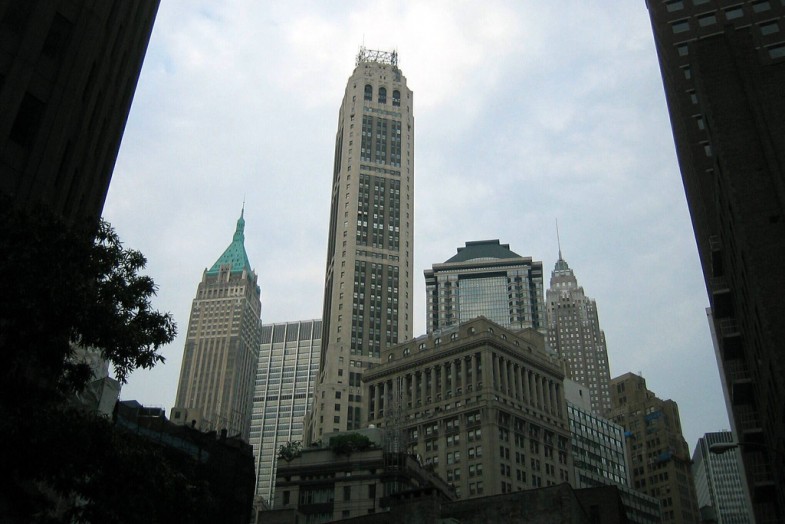In the fight over the bailout, the rhetoric of Main St. vs. Wall Street is politically important in contrasting the real economy with the speculative casino economy. But we should also embrace all financial markets as part of the commons that sustains healthy communities.
Our sophisticated financial markets have been built over several generations and are regulated at taxpayer expense through oversight institutions such as the Securities and Exchange Commission.

NYC financial district photo by wallyg from Flickr Creative Commons lisence BY, NC, SA.
This “free marketplace” is often regarded as a private sector, detached from government. But these market mechanisms are part of the social commons. The stock market and the banking system are human-created societal assets, with rules and systems that ideally provide a credible and secure way to transact business. No one owns the “banking regulatory system.” We all own it. This market provides liquidity and credit, necessary ingredients to healthy commerce and life.
The stock market is just one of the ways in which a private enterprise benefits from society’s investment and infrastructure. An entire system of commons institutions foster trust and faith in the marketplace. This commons includes oversight by government and private trade associations, accounting practices, legal remedies to resolve conflict and punish wrong-doers, and patenting offices to protect inventions.
What happens when the oversight is weakened and trust and confidence in the marketplace are shaken? After the Enron and WorldCom scandals, millions of investors lost confidence in the accuracy of corporate accounting. A study by the Brookings Institution, Cooking the Books: The Cost to the Economy, estimated that the decline in investor confidence cost the economy approximately $35 billion. In the weeks after the June, 2002 disclosure of the WorldCom accounting irregularities, the stock market lost 28 percent of value.
But because our political system has been captured by finance capital, we didn’t make the urgently needed changes to strengthen accountability in the “financial market” commons. Now we are beginning what Charles Morris, author of The Trillion Dollar Meltdown,
calls, the “Great unwinding.”
Government and the nonprofit sector have an important role in ensuring that the financial markets are not turned into a speculative casino. Government oversight is how we protect this commons —and it is obvious that the speculators won the upper hand for the last decades. We should reclaim our financial market commons.
One important demand is that the abusers of the system pay the costs of the clean-up.
The public is deeply offended that we should use tax dollars to bailout Wall Street. This is a deeply “commons” impulse –and could lead to a progressive populist movement for taxing the very rich who benefited from the deregulated casino economy. Dedrick Muhammad and I wrote an article about how to raise $900 billion from very progressive sources: wealth tax ($200 billion), surcharge on income taxes over $5 million $105 B). See our article.



